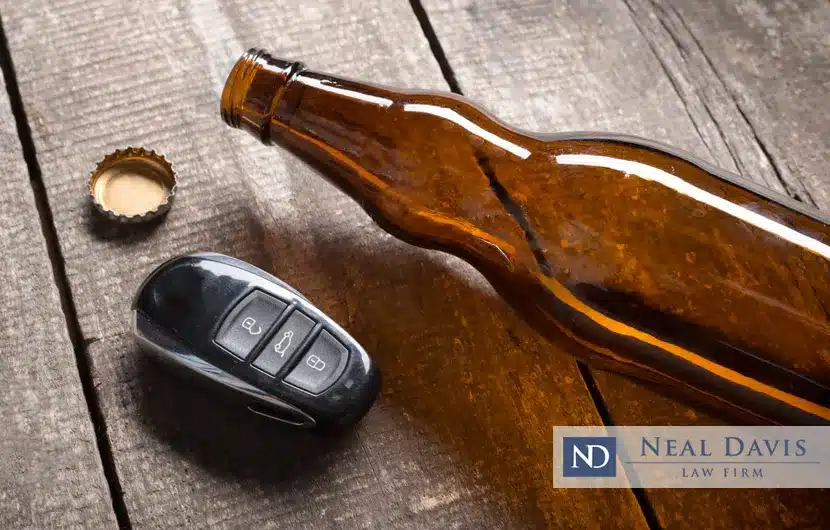
Drunk driving, or driving while intoxicated (DWI), is a serious crime because states take seriously the death and injury toll of drunk drivers — especially in Utah, where drunk driving laws are about to get a heck of a lot tougher.
On Dec. 30, 2018, Utah will lower its “legally drunk” standard for drunk drivers from 0.08 percent blood alcohol content (BAC) to 0.05 percent. That will be the lowest such BAC level in the entire nation.
The drunk driving laws of Texas (and most other states) set a BAC level of 0.08 or higher for non-commercial drivers over age 21. That’s the tipping point for being legally drunk while driving.
But starting soon in Utah, anyone with a BAC of just 0.05 or higher can be arrested for drunk driving. And if they cause a death while driving they will be charged with the felony of criminal homicide.
The case for lower BAC limits
Since 2013, the National Transportation Safety Board has been pushing to lower the legal drunk-driving limit nationwide from 0.08 to 0.05. Now, it’s applauding Utah’s decision to lead the way.
“We think it will be a great incentive for other states,” NTSB member Bella Dinh-Zarr recently told CNN.
Dinh-Zarr said nearly 100 other countries have a nationwide 0.05 BAC legal limit, and those countries also have lower rates of alcohol-related fatalities — despite the fact that their citizens consume as much alcohol per capita as persons in the United States.
It’s believed the U.S. could decrease drunk-driving fatalities similarly by adopting the same legal standard for driving drunk.
Drunk driving statistics
That’s not to say raising awareness via drunk driving campaigns in America hasn’t worked. In fact, drunk driving deaths have dropped by one-third in the U.S. in the last three decades.
Even so, the problem remains, with 28 persons killed in alcohol-related collisions in the U.S. each day, on average. The most recent statistics from the National Highway Traffic Safety Administration also show that alcohol-related road deaths account for more than 25 percent of all motor vehicle deaths in America.
How much does it take to be legally drunk in Texas?
To reach the higher 0.08 BAC legal limit in Texas and other states, an average-sized man would need to consume around four drinks in an hour. For women and adolescents, alcohol consumption would be less to reach the same 0.08 BAC limit — perhaps just one or two drinks per hour. (About a third of Texas’ alcohol-related traffic deaths impact people 21 or younger.)
An 0.08 BAC would cause impairment of speed control, memory, concentration, perception and the ability to process signals — traits which we can all agree are needed to operate a motor vehicle safely and effectively.
What about Utah?
According to the Centers for Disease Control and Prevention, even at Utah’s new BAC level of just 0.05, a driver would have difficulty steering, less ability to track moving objects, less coordination and a slower response to emergency driving situations.
Utah officials believe the state’s new lower BAC limit of 0.05 will serve as a deterrent to drunk drivers and reduce drunk driving by making people “think twice” about getting behind the wheel after drinking. Officials believe if all states adopted this limit, 1,500 lives yearly could be saved in America.
DWI penalties and punishments in Texas
For the time being, what’s the penalty for a DWI arrest in Texas for an 0.08 BAC?
Often, that means a misdemeanor for the first two offenses, but a felony for the third. A felony DWI could mean a suspended driver’s license, a fine of up to $10,000 and prison time of two to 10 years.
So you see, though Texas’ BAC limit isn’t as tough as Utah’s will be, Texas drunk driving punishments can be tough, indeed.
Of course, not all BAC tests are accurate, and some persons are arrested unfairly for DWI. It may be necessary to challenge DWI breathalyzer test results to prove your innocence.
If you or a family member faces an intoxication offense or DWI charge in Houston, Harris County, Montgomery County or Fort Bend County, you should know that the Neal Davis Law Firm has experienced and aggressive Texas DWI defense lawyers. Contact us today. We’ll quickly provide you with a legal review of your case, and we can protect your legal rights when charged with violating Texas’ drunk driving laws.
More states push to lower BAC limits for drunk drivers
Learn how recent efforts in some states to lower BAC limits could affect DUI laws and what this means for Texas.


